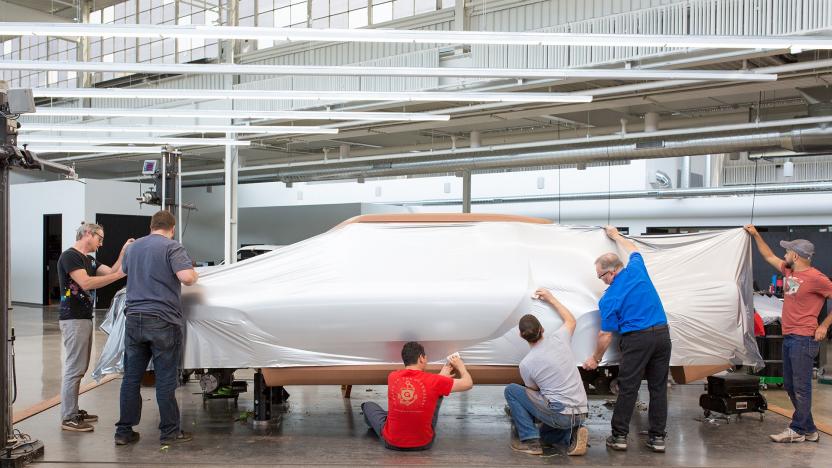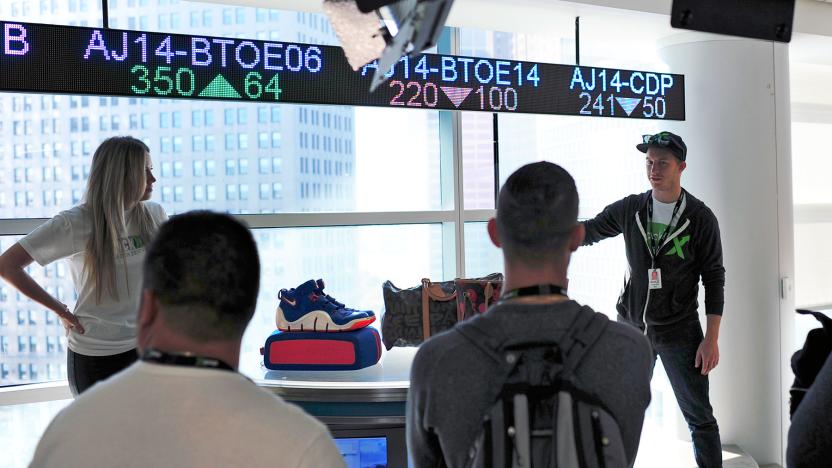michigantechrevival
Latest

Ford's next 'City of Tomorrow' is Grand Rapids, Michigan
Ford's investment in the Mitten State isn't over. Last week the company announced that it was transforming the aging Michigan Central Station in Detroit into an innovation hub for things like autonomous vehicles and smart cities. Today, the automaker is 130 miles west in Grand Rapids to reveal the $100,000 Grand Rapids City of Tomorrow Challenge -- a way to crowdsource solutions to Michigan's second largest city's mounting traffic and mobility woes.

Inside the automotive startup taking EVs off-road
The Tesla Model X is the "least capable SUV ever made," according to Rivian CEO RJ Scaringe. It sits too low to the ground, for one, and yet, somehow, most American garages aren't tall enough for the rear doors to open. It's something that looks great sitting next to a Lamborghini or a Porsche, but it's more style than substance. It's an SUV in name alone. You won't take your Model X to ride the sand dunes for a weekend, but that's precisely what Scaringe wants you to do with anything his startup makes. It's understandable if you don't know who or what Rivian is. The company, founded in 2009, has around 350 employees, and its executive team is composed of designers and executives from Hummer maker AM General, Chrysler, McLaren and others. Its design headquarters are located outside of Detroit; there's also a pair of tech and research centers in California split between the San Francisco Bay Area and Irvine. Rivian is led by Scaringe, a 35-year-old MIT grad. Previously he founded Mainstream Motors, working on a fuel-efficient vehicle before pivoting to EVs in 2012. Even more than other tech companies, this one's plans have been shrouded in secrecy -- it was important to Scaringe that his company have something to show before making promises he couldn't keep.

Ascape Audio's earbuds boast wireless sound in a convenient package
If you want to put a little Motown in your ears, the Kickstarter campaign for Ascape Audio's newest Detroit-designed fully wireless earbuds and charging case has finally launched. The pitch is as follows: The AmpPack is a charging case that holds and charges the AscapePod fully wireless earbuds. The AmpPack automatically starts charging the twist-to-lock earbuds as soon as you secure them into the cradle near your phone's earpiece. The case's internal battery has enough power to charge them 20 times, or, it can double the life of your phone battery.

Ascape Audio and the economics of making headphones in America
Ascape Audio's home page proudly proclaims "Designed in Detroit," but at this point it's not helping business. "It hasn't made any goddamn impact," marketing director Dean Clancy said. "I want to put that in as many places as possible, because regardless of how it impacts our sales, I just want people to know we're doing it here," he said. "Designed in Detroit" they may be, but economics makes manufacturing Ascape's earbuds in the Motor City impossible. President Paul Schrems estimated it'd take at least $5 million to build a factory and staff it, so the company has offshore-manufacturing contracts for the wireless earbuds it designs in the D. "These things I wanna make are not made here," Schrems told me recently.

Why sneakerheads are leaving eBay for Detroit startup StockX
Buying a pair of new rare sneakers is harder than reselling them on StockX. To buy new, the Yeezy or Jordan gods have to smile upon you, giving you that winning raffle ticket at a local store or letting you beat the bots online. To resell, all you have to do is go to the StockX website and set a price. You don't take photos or haggle with potential buyers. Instead, you look at what price the shoes are selling for and list your pair at whatever amount you think someone will pay for them. Like a stock exchange, buyer and seller identities are kept from one another. StockX acts as a middleman, only releasing payment once it verifies that goods are authentic. It's this simplicity that has helped the company earn so many loyal users. StockX was founded in 2015 after Quicken Loans founder and CEO Dan Gilbert bought Campless -- an online repository for sneaker sales data -- from Josh Luber. As part of the purchase, Luber moved from his native Philadelphia to the Detroit metro area, taking up the mantle of StockX CEO and working from Gilbert's One Campus Martius building downtown. In a little under three years, the company has become the go-to source for buying rare high-end shoes and streetwear.
